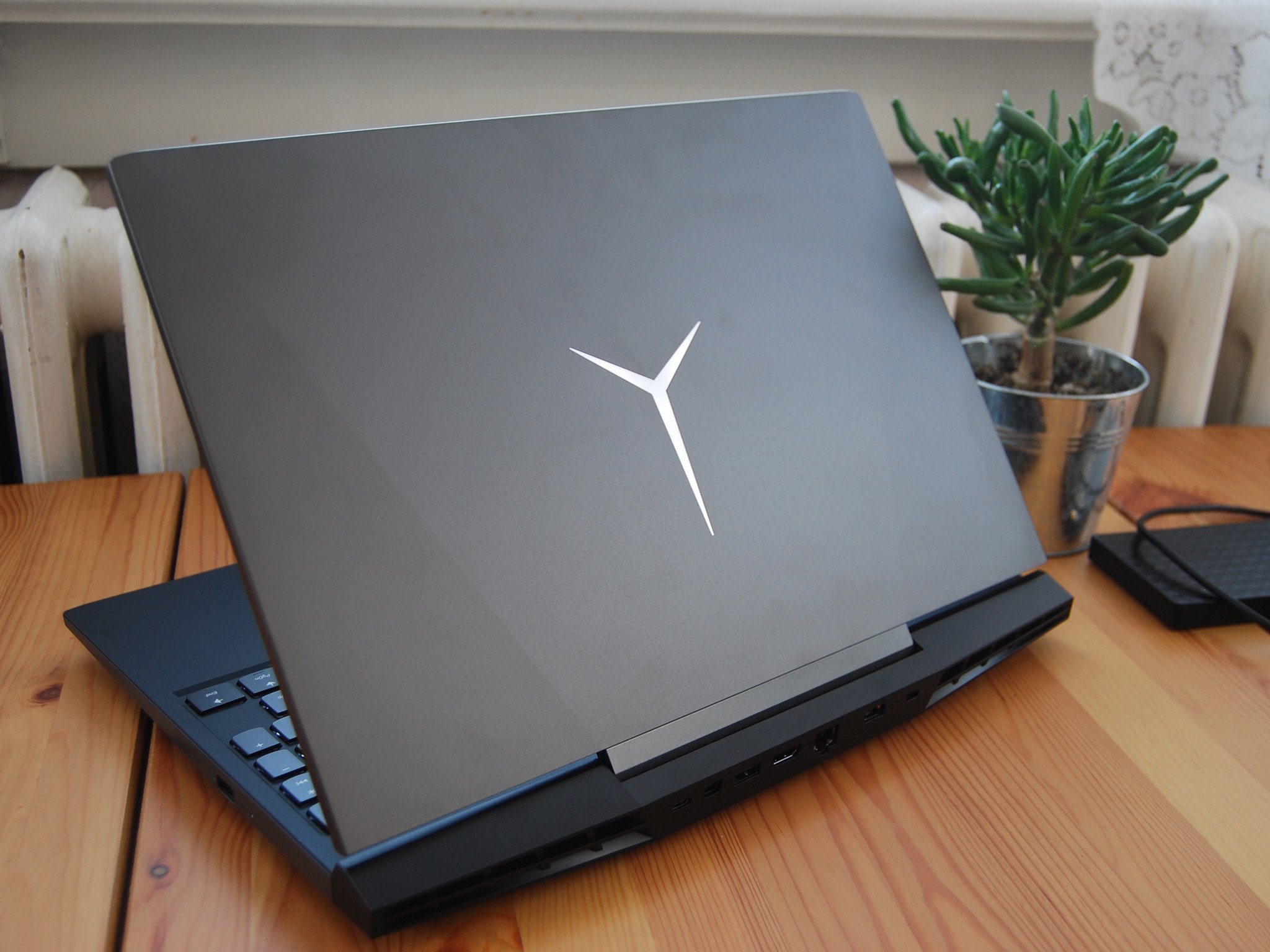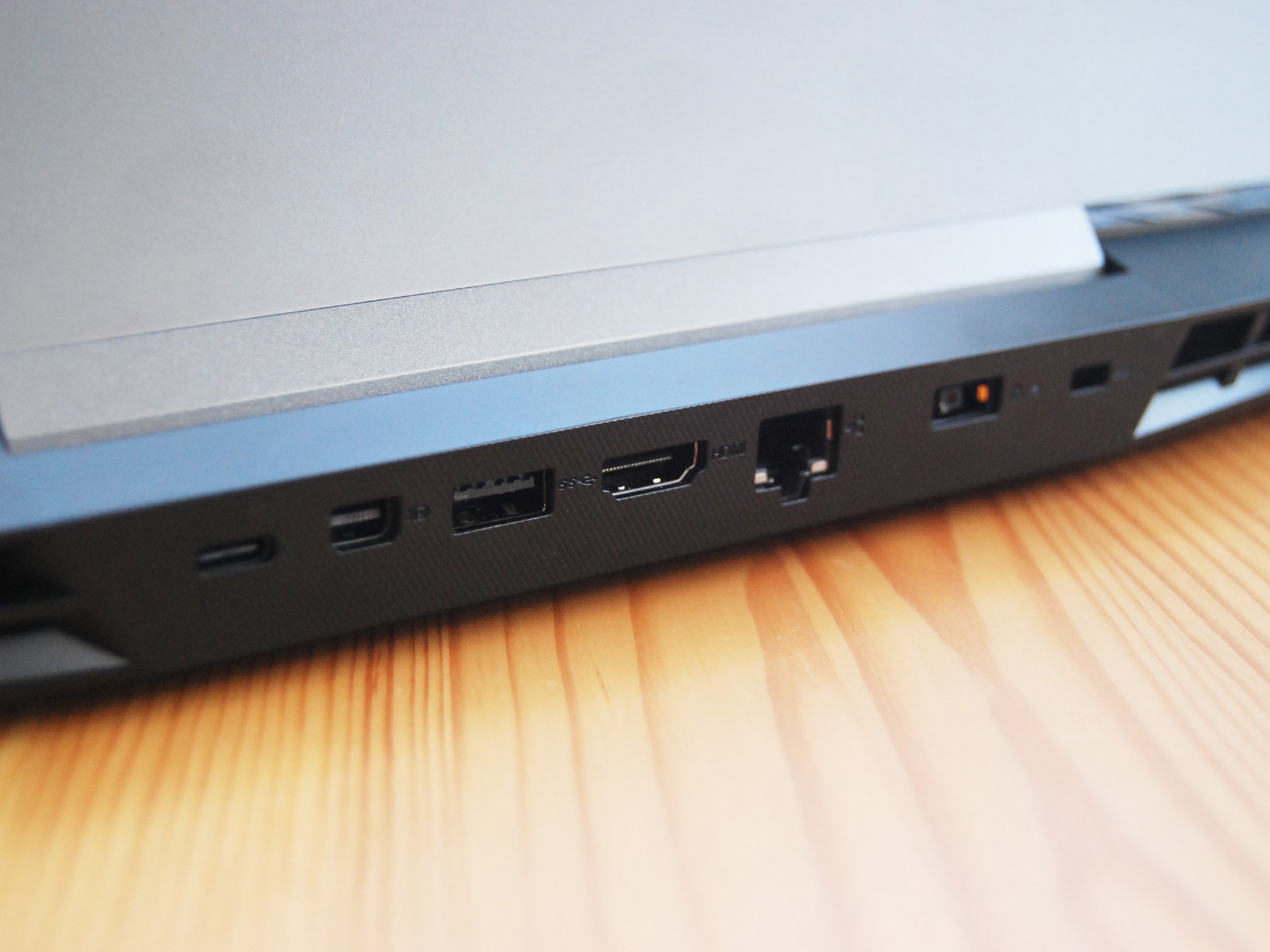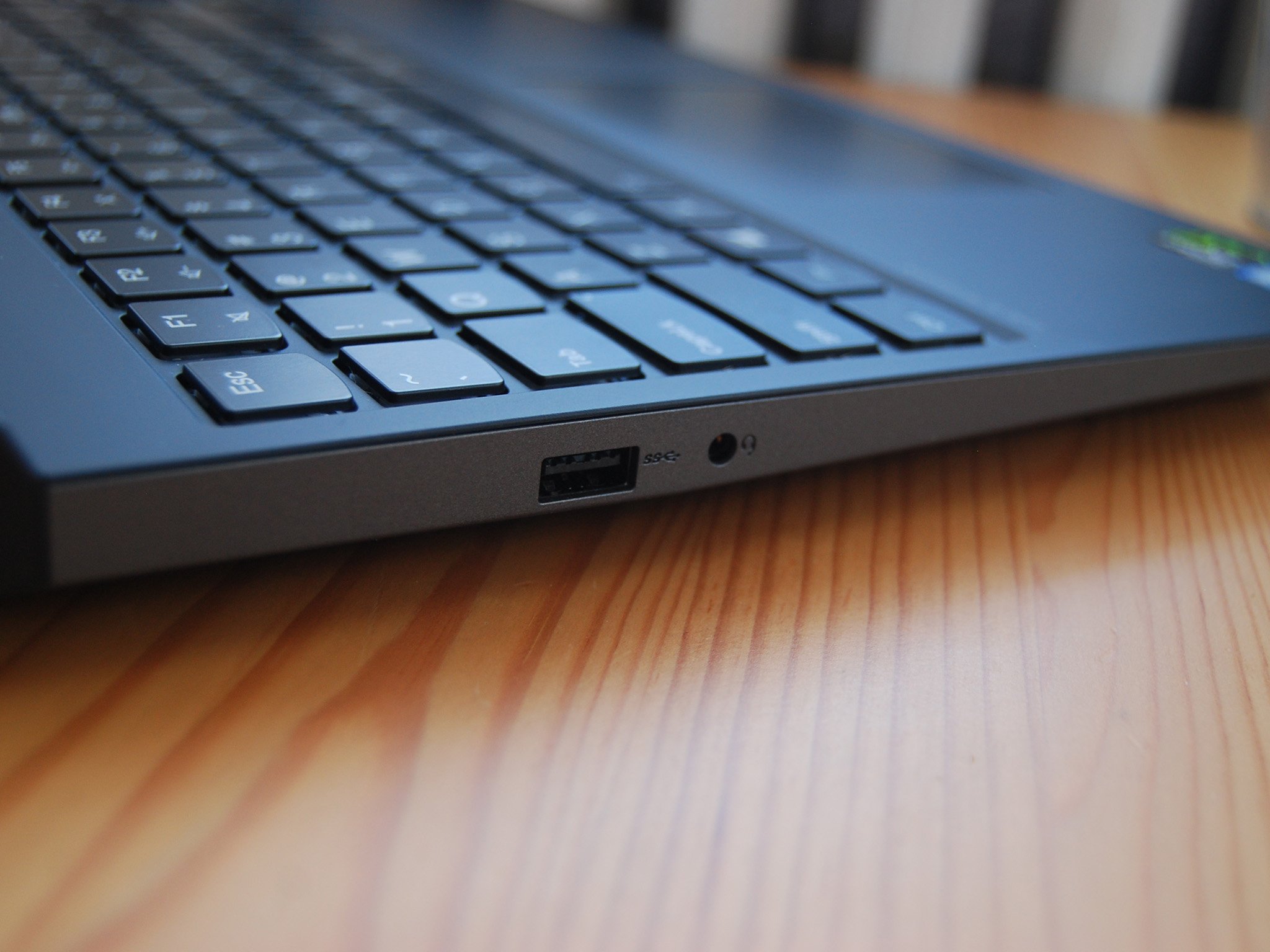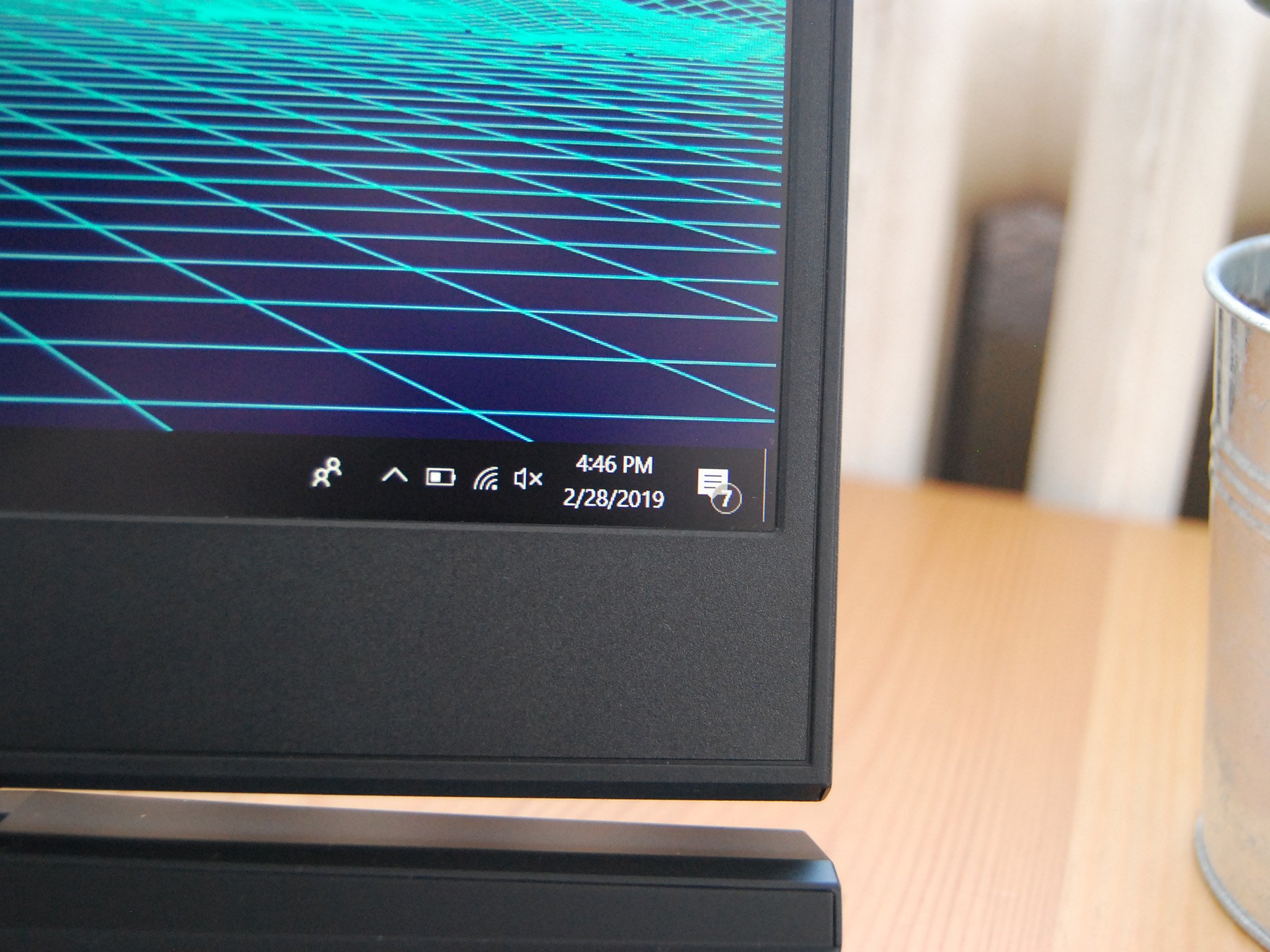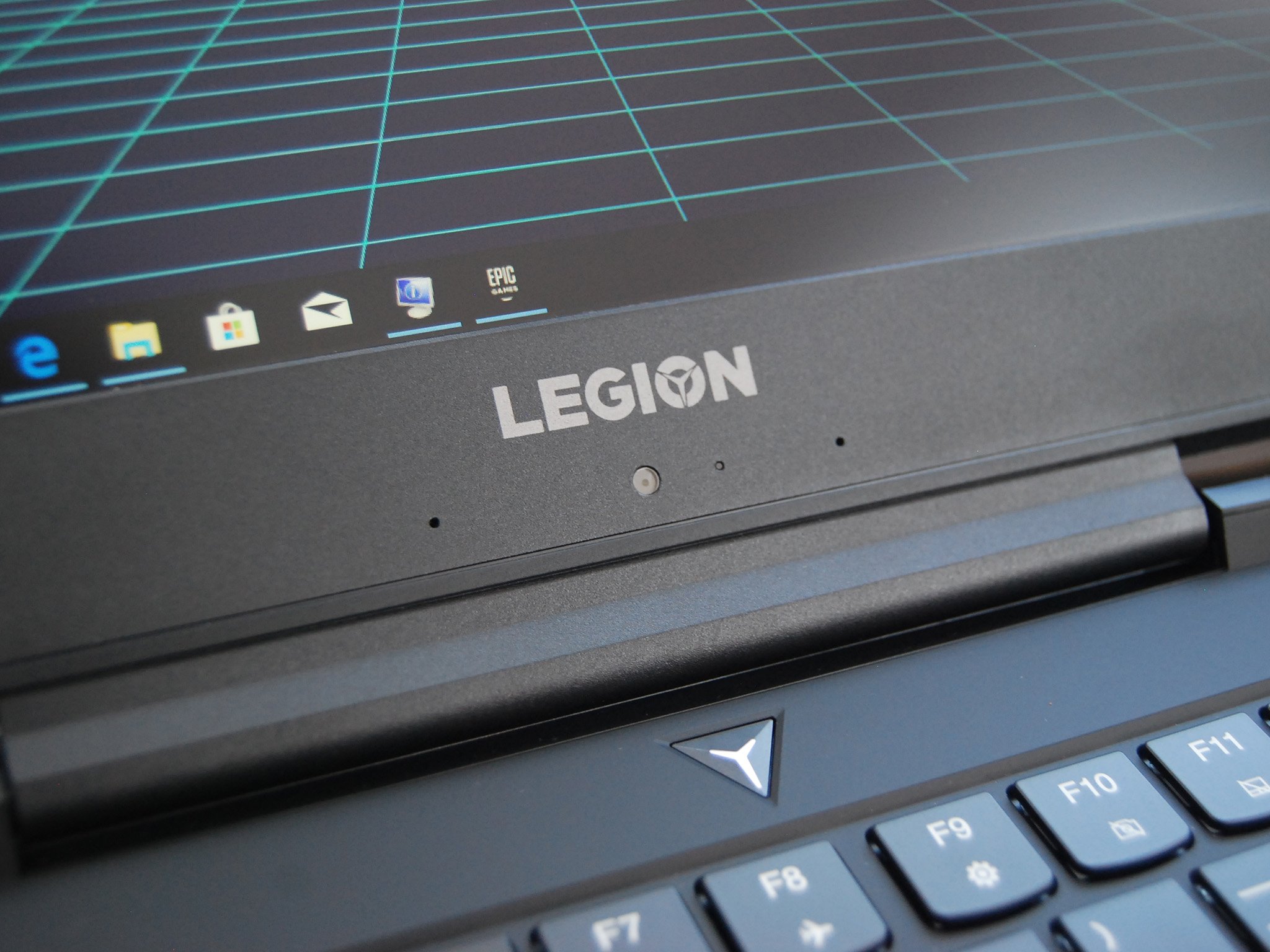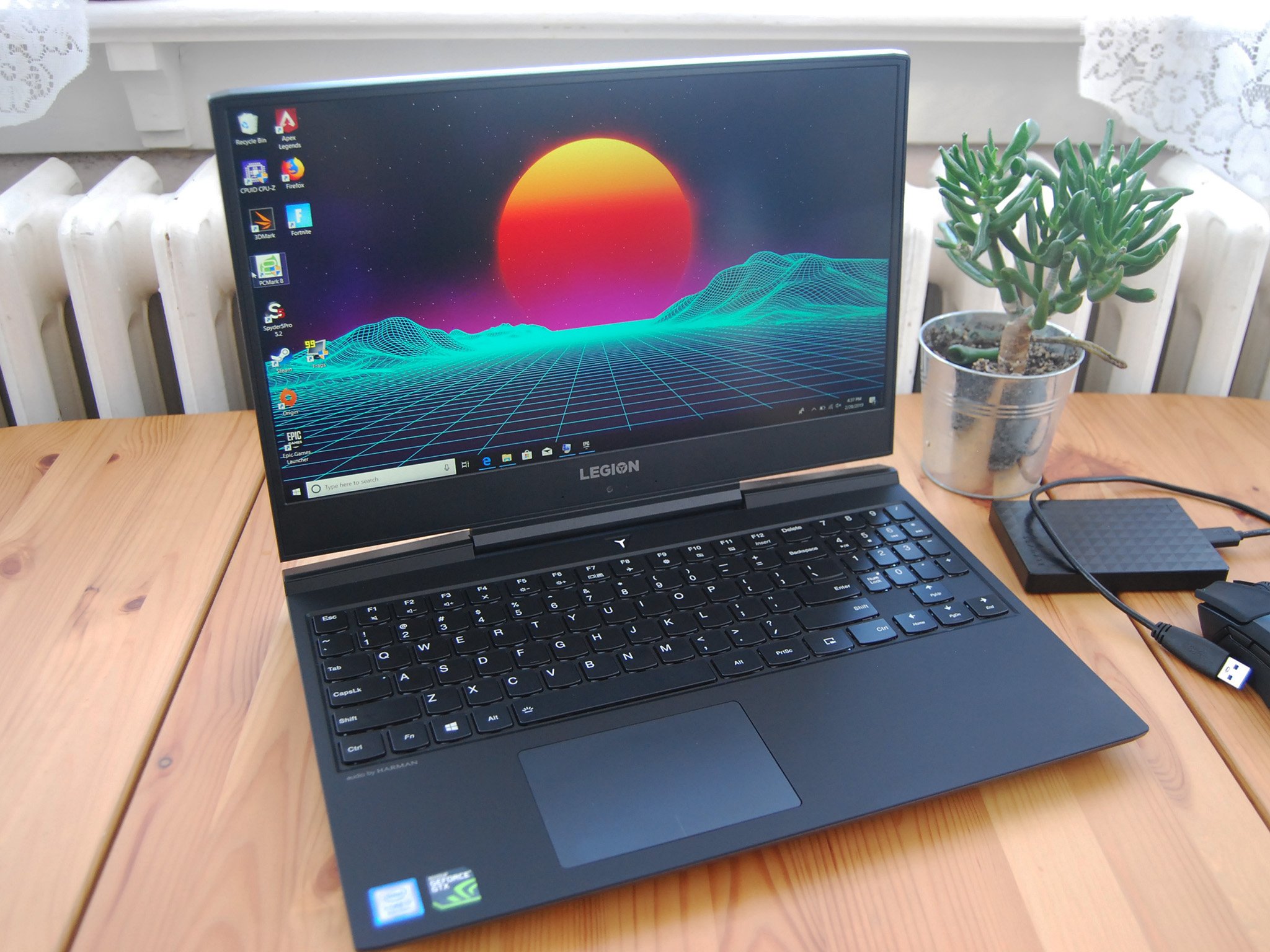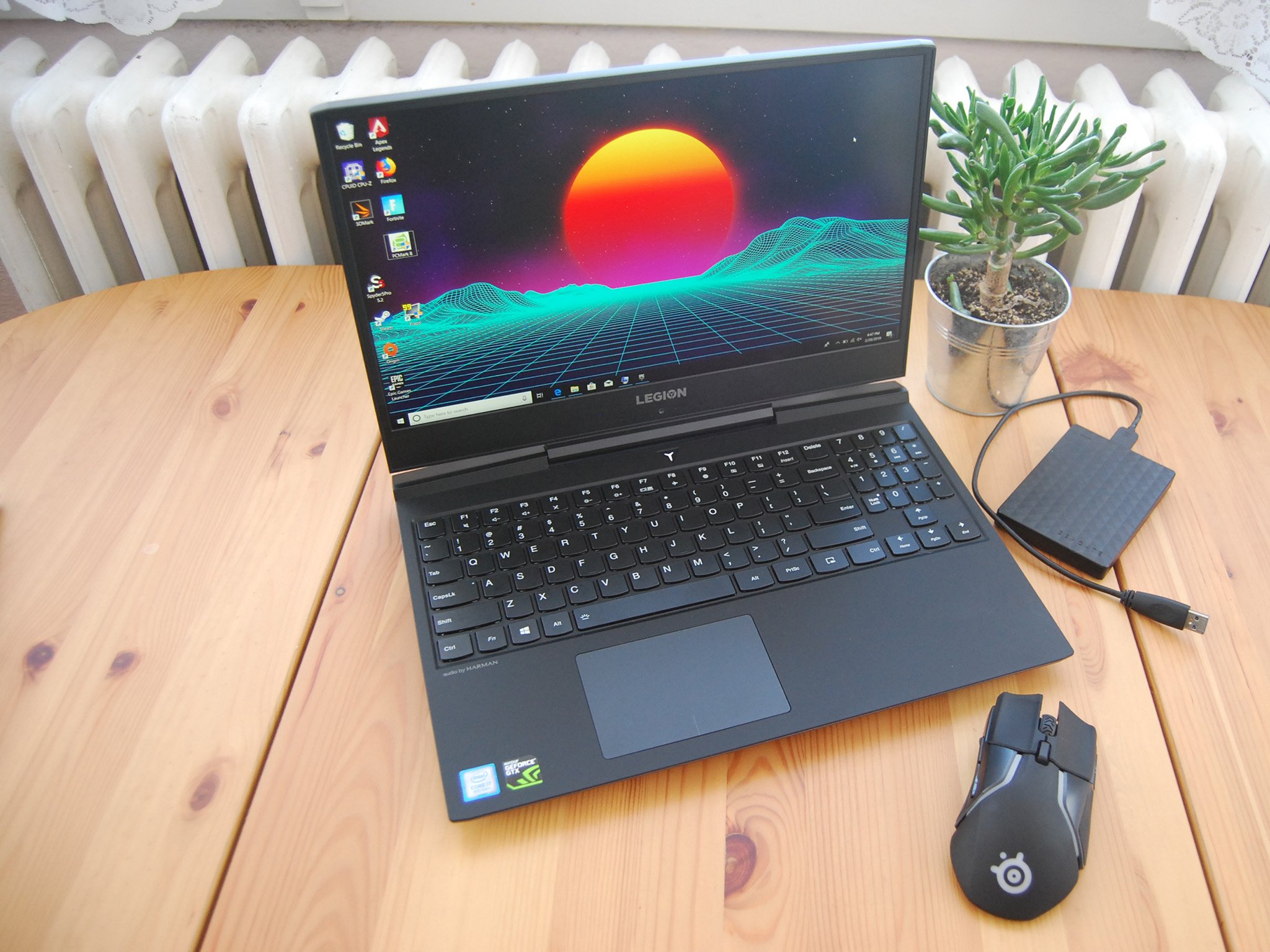
All the latest news, reviews, and guides for Windows and Xbox diehards.
You are now subscribed
Your newsletter sign-up was successful
Alongside its Legion Y500- and Y700-series gaming laptops, Lenovo has released the 15-inch Legion Y7000 and Y7000P as slightly bulkier alternatives that keep the price down yet offer respectable performance. In the face of Lenovo hardware refreshes that involve RTX 20-series graphics cards (GPU) and a significant price hike, the Y7000 is a welcome addition for anyone who wants to keep things somewhere around the $1,000 mark.
It can outrun the 15-inch Y730 yet has a similar price, and while it doesn't have all the same flashy features — no customizable RGB lighting, no overclocking, no physical buttons on the touchpad, no Thunderbolt 3 — you're paying more for raw power here than for anything else. And the Y7000 still has a fair share of tricks up its sleeve that keep it from completely devolving into a device that would fit in better three or four years ago.
Lenovo loaned Windows Central a Legion Y7000 model — there are also Y7000P models available with less storage and RAM for about $1,000 — with an Intel Core i7-8750H processor (CPU), 16 GB of RAM, a 1 TB hard-disk drive (HDD) coupled with a 256 GB solid-state drive (SSD), and a NVIDIA GTX 1060 GPU. It costs about $1,250.
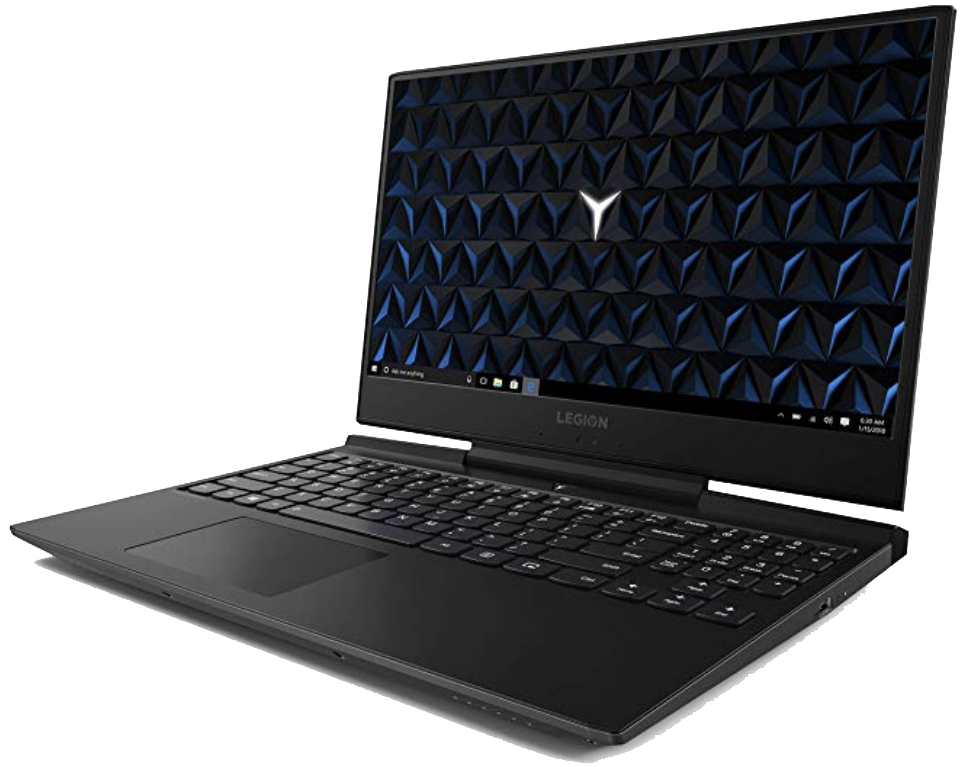
$1,250Bottom line: As long as you don't mind the slightly chunkier design and lack of some premium features, the Legion Y7000 delivers strong performance and a great 1080p display.
Pros
- Impressive specs for price
- Colorful 1080p display
- Wide selection of ports
- Fast PCIe SSD
- RAM, SSD, and HDD can be upgraded
Cons
- Webcam below display
- Average battery life
Lenovo Legion Y7000 technical specifications
| Category | Spec |
|---|---|
| Display | 15.6 inches 1,920 x 1,080 (FHD) IPS, non-touch 60 Hz refresh rate 4 ms response time |
| Processor | 8th Gen Six cores Intel Core i7-8750H Up to 4.10 GHz |
| RAM | Dual channel 16 GB DDR4-2666MHz |
| Storage | 256 GB Samsung PM981 PCIe SSD 1 TB Seagate 7,200 RPM HDD |
| Graphics | NVIDIA GTX 1060 6 GB GDDR5 VRAM |
| Ports | Three USB-A 3.1 USB-C 3.0 HDMI 2.0 RJ45 Ethernet Mini-DisplayPort 1.4 3.5 mm audio |
| Audio | Dual 2 W speakers Harman audio |
| Camera | Front-facing 720p |
| Battery | 52.5 Wh |
| Dimensions | 14.21 inches x 10.5 inches x 1.06 to 0.89 inches (361 mm x 266.72 mm x 26.9 to 22.6 mm) |
| Weight | 5.1 pounds (2.3 kg) |
What you'll love about the Lenovo Legion Y7000
The Legion Y7000 is a bit of a throwback to Lenovo's older gaming laptops before the "mature" refresh we saw in 2018. It still has a collection of ports along the back, which I love simply for the convenience and aesthetic, but it doesn't have the same wraparound venting that extends itself to the sides. Instead, you get a rather chunky vent on either side of the rear port station as well as the customary intake on the bottom panel.
There's a wedge design to the lower ABS-plastic chassis that kind of makes it look thinner than it is, but it still measures just over an inch at its thickest. The bottom is rigid and doesn't flex or creak much, but the aluminum lid is a different story. It has a fair amount of flex, especially due to the single-wide hinge in the middle instead of the dual hinge system the new Legions are using. Still, it's nothing that should impact your use of the laptop. As for weight, at 5.1 pounds (2.3 kg) it's on the heavy side but matches up with most 15-inch gaming laptops out there.
The left and right edges have a USB-A 3.1 port each, as well as a 3.5 mm headset combo jack on the left. The back edge includes USB-C 3.0, another USB-A 3.1, HDMI 2.0, RJ45 Ethernet, Mini-DisplayPort, and Lenovo's proprietary charging port. There's no Thunderbolt 3 here, cut to save cost, but at least USB-C makes an appearance for your newer accessories. Ports are kind of bunched up, but because they're on the back edge, you shouldn't have to really deal with the crowded appearance when you have everything plugged in.
Upon opening the display for the first time, the color and contrast were surprising. The general picture is full and vivid, and testing color reproduction I got back 94 percent sRGB and 73 percent AdobeRGB, which is respectable for something this price. The FHD resolution looks great at 15.6-inches, and the picture looks a bit larger than it is thanks to minimal bezel around the top and sides.
All the latest news, reviews, and guides for Windows and Xbox diehards.
Brightness doesn't go as high as I'd like it to and working in direct sunlight might be an issue, but the matte finish does a great job of cutting down on glare. For the most part, other than a couple of specific instances (like trying to take pictures in a well-lit room), I didn't need to fight glare while gaming.
Instead of a flashy RGB keyboard with extra macro keys and mechanical switches, the Y7000 has a rather plain keyboard with a simple three-step white backlight. Keys still have decent travel for comfortable typing, and Lenovo has made full use of the space available to fit in a number pad without cramping the key space.
The touchpad is offset to center itself below the spacebar, and it's using Microsoft Precision drivers for a full gamut of gestures. It doesn't have physical buttons like the Legion Y500 and Y700 laptops, but I don't think that's too big of an issue unless you prefer a touchpad for gaming. Most people will plug in an external mouse as soon as the first games are finished downloading.
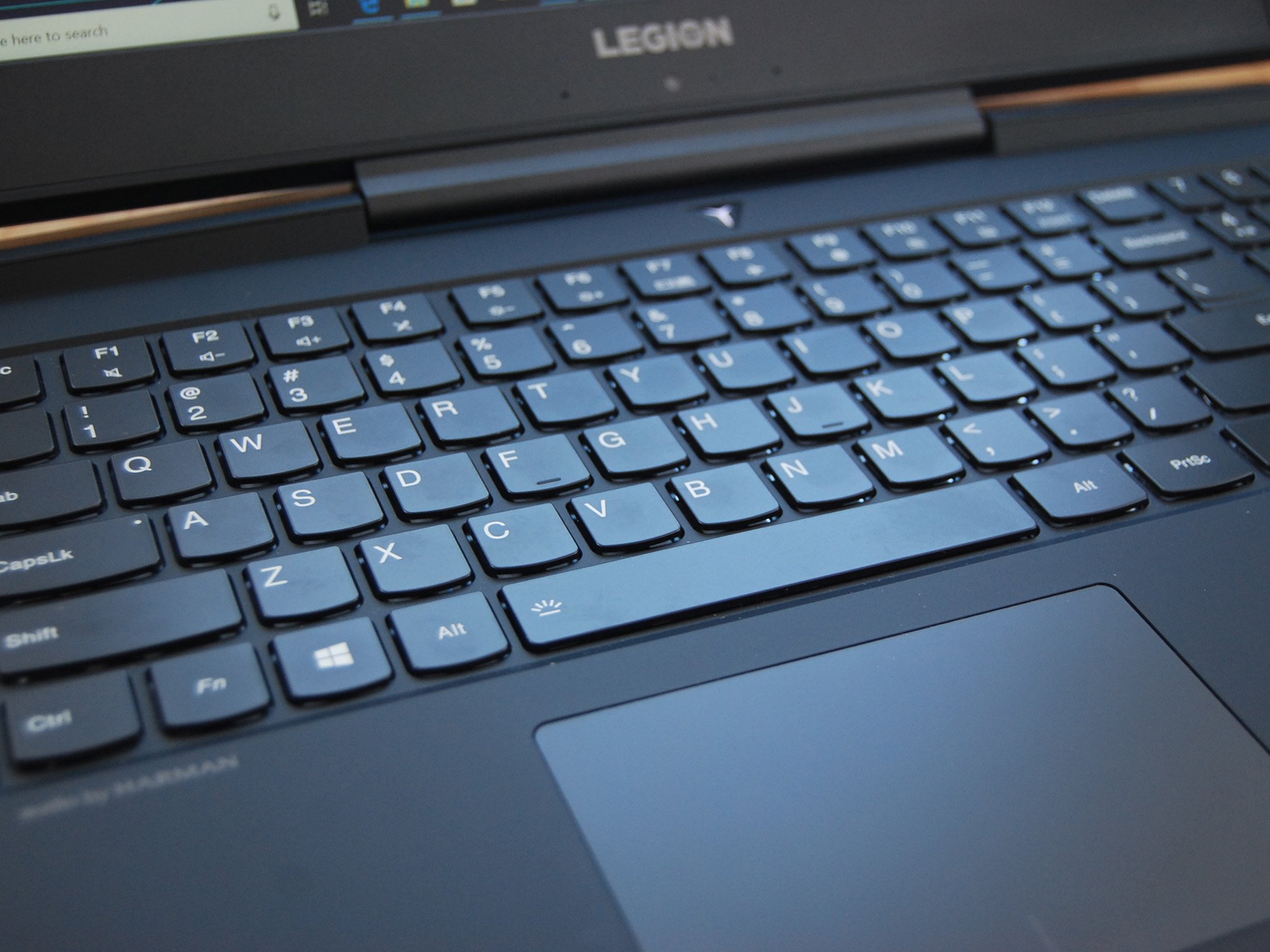
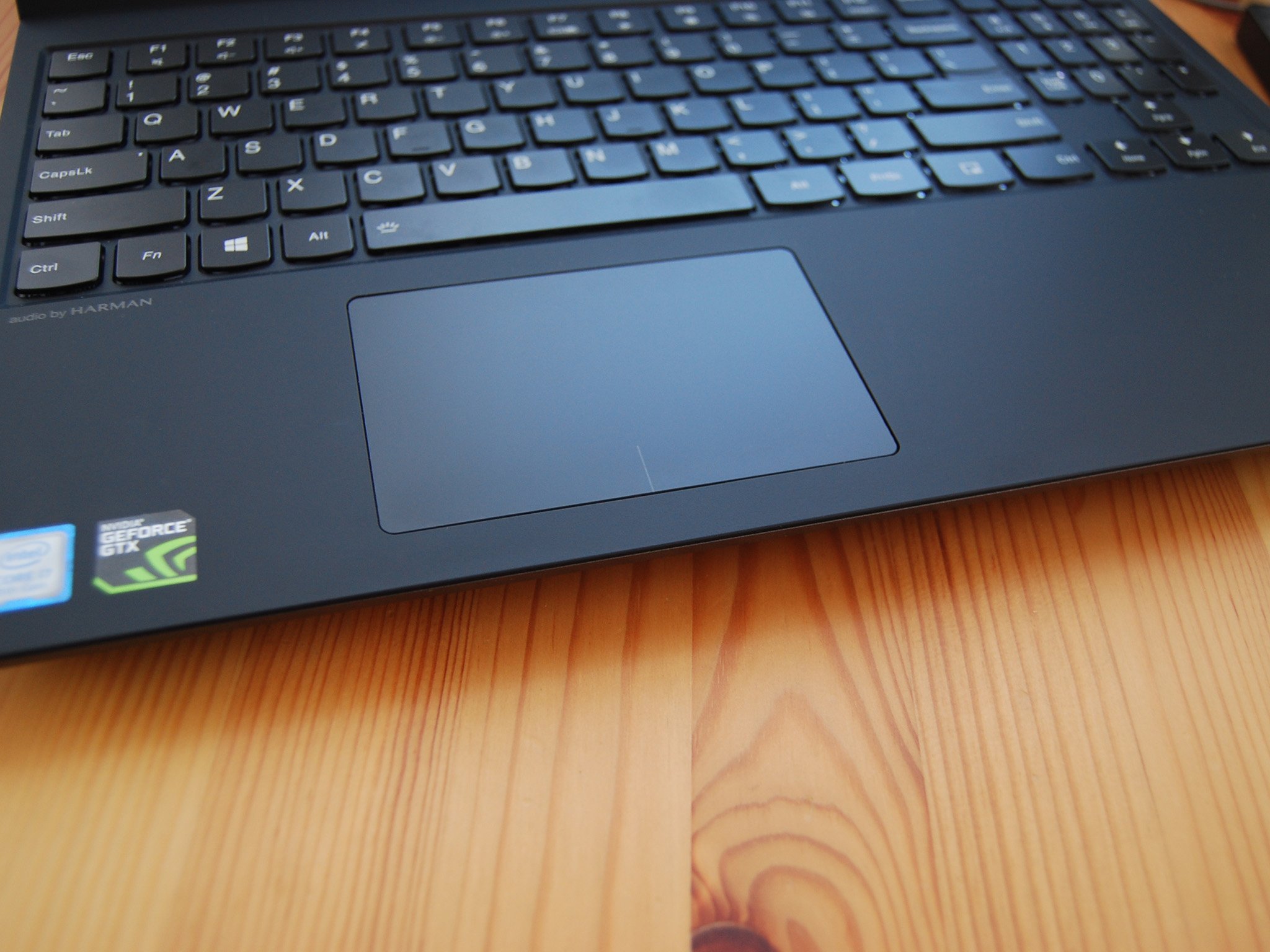
Power is the truly attractive part of the Legion Y7000. While you still pay, in some cases, more than you would for the sleeker Legion Y730, you're getting a superior gaming experience when it comes to raw performance. The NVIDIA GTX 1060 has a Max-Q design and 6 GB of GDDR5 VRAM, which is enough to play most modern games at medium settings.
As long as you're not attempting to play the latest AAA games on Ultra settings, the Y7000 is going to put up respectable frames, especially if you're using a model with a 60 Hz display, like this review unit. Other than the synthetic benchmarks below, I played some Apex Legends and Fortnite to see what a lot of people would experience.
In Apex Legends, with settings on High and with V-Sync turned off, the Y7000 averaged 68 FPS over a single round, dropping to a minimum of 38 and hitting a maximum of 116. As for Fortnite, with Epic settings and V-Sync off, the Y7000 averaged 78 FPS over a single round, dropping to a minimum of 0 and hitting a maximum of 132. You will undoubtedly hear the fans running when under max load, but that's to be expected. There's a lot of hot hardware contained in a very small space, and you'd rather hear the fans than experience thermal throttling.
3DMark
Time Spy (Higher is better)
| Laptop | GPU | Score |
|---|---|---|
| Lenovo Legion Y7000 | GTX 1060 | 3,975 |
| Lenovo Legion Y730 | GTX 1050 Ti | 2,568 |
| Lenovo Legion Y530 | GTX 1050 Ti | 2,330 |
| Dell G7 15 7588 | GTX 1060 | 3,792 |
| Lenovo Legion Y720 | GTX 1060 | 3,469 |
| Lenovo Legion Y520 | GTX 1050 Ti | 2,491 |
3DMark
Fire Strike (Higher is better)
| Laptop | GPU | Score |
|---|---|---|
| Lenovo Legion Y7000 | GTX 1060 | 10,137 |
| Lenovo Legion Y730 | GTX 1050 Ti | 6,890 |
| Lenovo Legion Y530 | GTX 1050 Ti | 6,864 |
| Dell G7 15 7588 | GTX 1060 | 10,029 |
| Razer Blade 15 | GTX 1070 | 13,560 |
CPU
Geekbench 4.0 Benchmarks (Higher is better)
| Device | CPU | Single core | Multi core |
|---|---|---|---|
| Lenovo Legion Y7000 | i7-8750H | 5,134 | 22,540 |
| Lenovo Legion Y730 | i7-8750H | 4,793 | 19,085 |
| Dell G7 15 7588 | i7-8750H | 4,897 | 21,245 |
| Razer Blade 15 | i7-8750H | 4,872 | 17,910 |
| Lenovo Legion Y530 | i5-8300H | 4,729 | 14,967 |
PCMark
PCMark Home Conventional 3.0
| Device | Score |
|---|---|
| Lenovo Legion Y7000 | 4,097 |
| Lenovo Legion Y730 | 3,731 |
| Dell G7 15 7588 | 3,853 |
| Lenovo Legion Y530 | 3,546 |
| Acer Predator Triton 700 | 4,205 |
| Lenovo Legion Y720 | 3,599 |
SSD
CrystalDiskMark (Higher is better)
| Device | Read | Write |
|---|---|---|
| Lenovo Legion Y7000 | 3,493.5 MB/s | 1,653.8 MB/s |
| Lenovo Legion Y730 | 3244.8 MB/s | 1335.4 MB/s |
| Dell G7 15 7588 | 521.5 MB/s | 303.4 MB/s |
| Razer Blade 15 | 2,722 MB/s | 1,217 MB/s |
| Lenovo Legion Y530 | 1,330.9 MB/s | 560.4 MB/s |
| Acer Predator Triton 700 | 3,353.5 MB/s | 1,859.3 MB/s |
The Samsung PM981 PCIe SSD performs admirable, but the 7,200 RPM drops down to just 88.3 MB/s read and 187.3 MB/s write speeds.
What you'll dislike about the Lenovo Legion Y7000
The Legion Y7000 focuses on delivering solid performance at an attractive price, so there are some spots that the laptop is understandably lacking. If you like the idea of a flashy RGB keyboard — even one with mechanical switches — you'll likely be disappointed by the rather plain keys here. That doesn't mean you can't plug in a mechanical keyboard alongside an external mouse, but on the go, you likely won't really wow anyone.
At 1080p with a GTX 1060 GPU, it would be nice if all display options hit a 144 Hz refresh rate, as the 60 Hz found here is pretty easily attained in a lot of popular games. The lower refresh rate means that even if the PC can put out a higher framerate — as we saw with both Apex Legends and Fortnite — you won't be able to take advantage because of the 60 Hz cap. There are some 144 Hz models out there, but they're not exactly clearly marked.
Below the display is the 720p webcam, which has a great angle to see up your nose when streaming or video conferencing. If you're serious about streaming, you'll no doubt want to invest in something with a much higher quality picture anyway, but it's still kind of annoying. As for speakers, they're loud but hollow. A headset is recommended if you're involved in anything competitive.
Finally, battery life is just average. Gaming laptops usually get a pass in this arena unless egregiously poor, and the Y7000 is no exception. When all systems are under load, and you're enjoying smooth gameplay, you'll watch the battery meter drain down in about an hour. Going about regular tasks you should be able to get a few hours from a charge, but if you plan on anything more, be sure to have your power adapter nearby.
Should you buy the Lenovo Legion Y7000 gaming laptop?
The Y7000 is presented as a gaming laptop with a focus more on performance than on extra features, and in that regard, it certainly succeeds. The Legion Y730 lineup has a more premium design, with RGB keyboard with macro keys, less bulky rear end, and dual-hinge setup, but if those don't matter to you, the Y7000 is likely quite attractive when it comes to 15.6-inch laptops.
Though it has an oddly-placed webcam, plain keyboard, no Thunderbolt 3, and average battery life, you get a colorful display, wide port selection, and the power needed to play modern games, all for a competitive price.

Cale Hunt brings to Windows Central more than nine years of experience writing about laptops, PCs, accessories, games, and beyond. If it runs Windows or in some way complements the hardware, there’s a good chance he knows about it, has written about it, or is already busy testing it.
